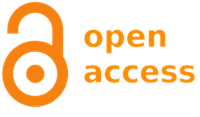Transparadigmatic investigations in Decolonial Transcomplex Mathematical Education
Abstract
In the present investigation we support a sentipensante transphilosophy in Transcomplex Decolonial Mathematics Education as a complex objective. Everything in a complex transmethodology from the transmethod, the comprehensive, ecosophical and diatopical hermeneutics and the analytical, empirical and propositional moments. Feeling-thinking is a very important decolonial category in Mathematics Education that encourages to imbue beyond rationality, towards emotional-spiritual processes, the brain learns better when it is excited and is not inhibited by restrictions of the imagination; in the tetra: body-mind-soul-spirit in full complexity in mathematics teaching. The sentipensante transphilosophy category reconstructs the original questions of philosophy to the urgent needs of Transcomplex Decolonial Mathematics Education and its relevance in the crisis of planet earth, as a line of research. At the propositive moment, as preliminary results in the ardor of Transcomplex Decolonial Mathematics Education and its sentithinking transphilosophy in the face of new epistemes, this is transepistemes of mathematics and Mathematics Education, which make the scene with a decolonial consciousness as institutional disobedience, epistemic indiscipline and epistemological, the questioning of Eurocentric knowledge of mathematics that leads to an emergency, interweaving and uncertainty of urgent recognition in the problems of humanity. Its application in Mathematics Education is very broad, mainly in transcurricular development processes, which transcend the hidden curriculum of deconstructed Mathematics Education and transmethodical scientific research of mathematics in the classroom social mind-spirit.
Downloads
References
Alvarado, J. (2017). Investigación filosófica en perspectiva decolonial. REDHECS. Revista Electrónica de Humanidades, Educación y Comunicación Social, 12(23), 236-252.
Bautista, J. (2014). ¿Qué significa pensar desde América Latina? Barcelona, ES: Akal.
Caraballo Rodríguez, M., & Rodríguez, M. E. (2019). Perspectivas complejas y antropoéticas de la Educación Inclusiva Ecosófica. Polyphōnia. Revista de Educación Inclusiva, 3(2), 117-133.
Dussel, E. (2015). Filosofías del sur. Descolonización y transmodernidad. Ciudad de México, MX: Akal.
Dussel, E. (2017). Filosofías del sur. Descolonización y transmodernidad. Ciudad de México, MX: Akal.
D’Ambrosio, U. (2005). Etnomatemática. Elo entre as tradições e a modernidades. Belo Horizonte, MG: Autêntica.
Fals, O. (2015). Una sociología sentipensante para América Latina. México, MX: Siglo XXI Editores; Buenos Aires: CLACSO.
Freire, P. (2003). El grito manso. Buenos Aires, AR: Siglo XXI.
Guattari, F. (1996). Las tres ecologías. París, FR: Éditions Galilée.
Maldonado-Torres, N. (2007). Sobre la colonialidad del ser: contribuciones al desarrollo de un concepto. In S. Castro-Gómez, & R. Grosfoguel (Eds.), El giro decolonial. Reflexiones para una diversidad epistémica más allá del capitalismo global (p. 127-167). Bogotá, CO: Siglo del Hombre Editores.
Morin, E. (1999). Los siete saberes necesarios para la educación del futuro. Paris, FR: UNESCO.
Ortiz Ocaña, A., Arias López, M. I., & Pedrozo Conedo, Z. E. (2018). Hacia una pedagogía decolonial en/desde el sur global. Revista nuestrAmérica, 6(12), 195-222.
Panikkar, R. (1963). Humanismo y cruz. Madrid, ES: Rialp.
Panikkar, R. (1999). La plenitud del hombre. Una cristofanía. Madrid, ES: Siruela.
Panikkar, R. (2005). De la mística. Experiencia plena de vida. Barcelona, ES: Herder.
Pari, A. (2019). La didáctica de matemáticas y ecología de saberes. Medelín, CO: XV CIAEM-IACME.
Pérez Lindo, A. (1980). Las matemáticas modernas: pedagogía, antropología y política. Entrevista a George Papy. Perfiles Educativos, 10, 41-46.
Ramallo, F. (2013). La educación en clave de-colonial: apuestas pedagógicas, saberes y experiencias desde las historias propias. Revista de Educación, 6, 249-266.
Rivera, S. (2015). Ch’ixinakax utxiwa. Una reflexión sobre prácticas y discursos descolonizadores. Buenos Aires, AR: Tinta Limón Ediciones.
Rodríguez, M. E. (2019). Deconstrucción: un transmétodo rizomático transcomplejo en la transmodernidad. Sinergias Educativas, 4(2), 43-58. DOI: https://doi.org/10.31876/s.e.v4i1.35
Rodríguez, M. E. (2020a). La ecología de los saberes en la Educación Matemática Decolonial Transcompleja. Ciências em Foco, 13, e020015, 1-18.
Rodríguez, M. E. (2020b). La hermenéutica comprensiva, ecosófica y diatópica: un transmétodo rizomático en la transmodernidad. Revista Perspectivas Metodológicas, 20, 1-15. DOI: https://doi.org/10.18294/pm.2020.2829
Rodríguez, M. E. (2020c). Las investigaciones transparadigmáticas en la Educación Matemática Decolonial Transcompleja. Revista Educação Matemática Pesquisa, 22(3), 698-725. DOI: https://doi.org/10.23925/1983-3156.2020v22i3p698-725
Rodríguez, M. E. (2020d). Serendipiando con los procesos mentales de la matemática en la complejidad en sentipensar decolonial. Revista Internacional de Formação de Professores, 5, e020012, 1-23.
Santos, B. (2003). Crítica de la razón indolente contra el desperdicio de la experiencia, volumen i, para un nuevo sentido común: la ciencia, el derecho y la política en la transición paradigmática. Bogotá, CO: Editorial Desclée De Brouwer, S.A
Santos, B. (2016). La difícil democracia. Una mirada desde la periferia europea. Madrid, ES: Akal.
Schlegel, F. (1994). Poesía y filosofía. Estudio preliminar y notas de D. Sánchez Meca (D. S. Meca, & A. Rábade, Traduc.). Madrid, ES: Alianza.
Skovsmose, O. (2012). Investigación, práctica, incertidumbre y responsabilidad. In P. Valero, & O. Skovsmose. Educación matemática crítica. Una visión sociopolítica del aprendizaje y la enseñanza de las matemáticas (p. 261-370). Colombia, CO: Universidad de los Andes, Centro de Investigación y Formación en Educación.
Sociedades Bíblicas Unidas. (1960). Santa Biblia (Versión Reina-Valera).

This work is licensed under a Creative Commons Attribution 4.0 International License.
DECLARATION OF ORIGINALITY AND COPYRIGHTS
I declare that this article is original and has not been submitted for publication in any other national or international journal, either in part or in its entirety.
The copyright belongs exclusively to the authors. The licensing rights used by the journal are the Creative Commons Attribution 4.0 (CC BY 4.0) license: sharing (copying and distributing the material in any medium or format) and adaptation (remixing, transforming, and building upon the material thus licensed for any purpose, including commercial purposes) are permitted.
It is recommended that you read this link for more information on the subject: providing credits and references correctly, among other crucial details for the proper use of the licensed material.













































